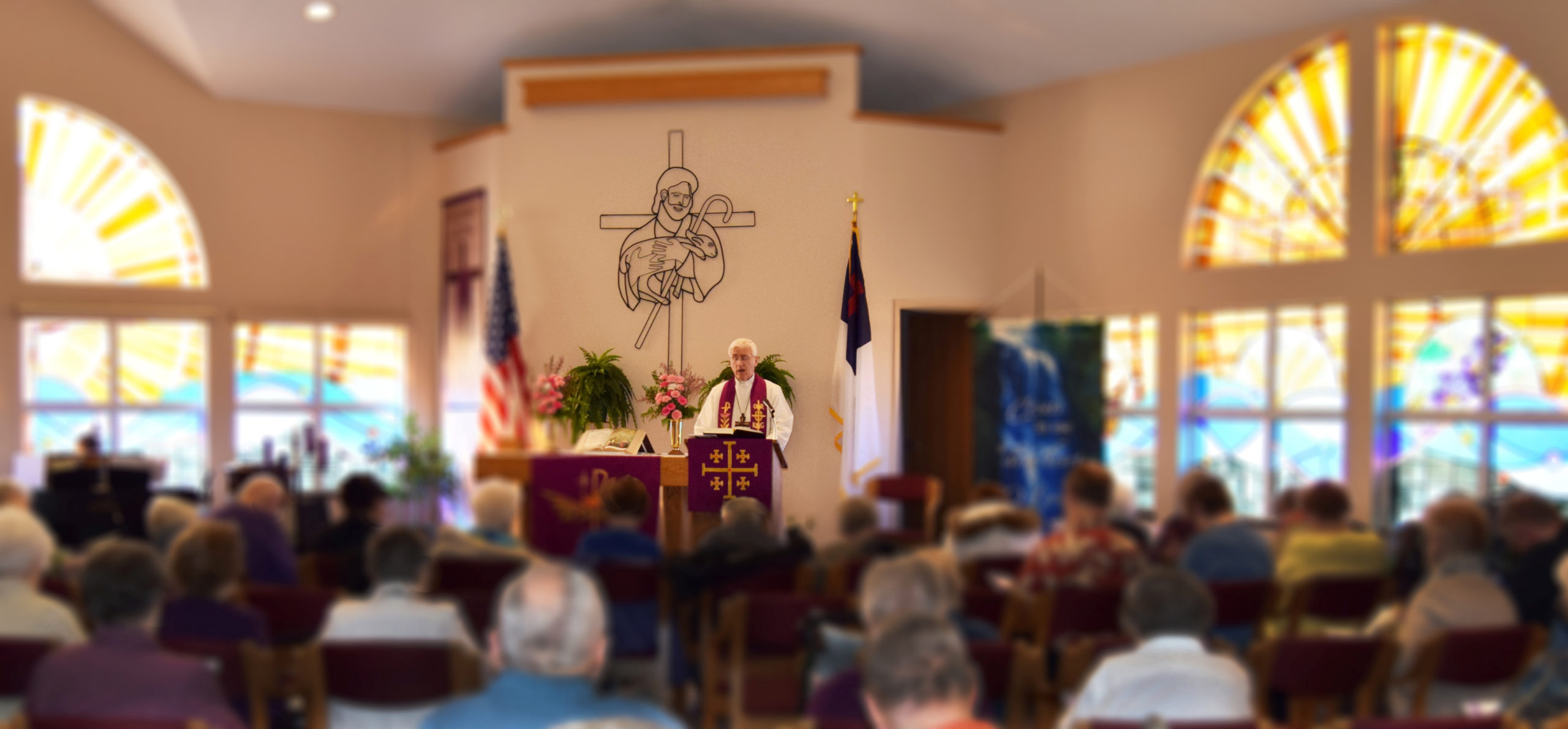
Compassion and mercy, loving attributes of God, are often interchangeable. Jesus spoke, as recorded in Luke 6:36, “Be merciful, even as your Father is merciful (compassionate).” Jesus’ core ethical value is compassion. As an individual virtue it means “imaging God.” Compassion expresses itself well when it is compared to the word “womb,” being womb-like, life-giving, nourishing; when we feel with another person, when we wear a human heart.
Compassion is the hallmark of our discipleship and the sign of God’s care for us. As the Psalmist wrote, “The Lord is gracious and merciful, slow to anger and abounding in steadfast love … his mercy (compassion) is over all that he has made” (145:8-9). This includes all ages and stages of life. Being compassionate means being open to share another’s burden, being a burden bearer. As the Apostle Paul wrote, “Bear one another’s burdens, and so fulfill the law of Christ” (Galatians 6:2). Compassion is not just sympathy; not just feeling for someone else’s pain and being thankful that we do not have to bear the same. Compassion is moving out into another’s pain and suffering, loneliness, isolation, and helping to bear them, birth them into new life. Compassion generates a sense of advocacy, “being for,” exerting some effort on behalf of a person, even in their 11th hour of life. Sadly these individuals can often become forgotten and devalued as a person in our society.
Such feelings also arise within our congregations, among individuals who have become homebound, or living in long-term care facilities—isolated, lonely, and forgotten.
Out of compassion, and in order to create a stronger atmosphere, for affirming life for those in or approaching the 11th hour, a unique congregation was birthed into being—The Lutheran Church of the Good Shepherd. When the congregation was established in 2003, I was told that it was the only one of its kind in the Lutheran Church-Missouri Synod started within a long-term care facility. The number one priority of its ministry was to help people feel at home and welcomed.
However, the question raised at the time was, and continues to be, “Why should such a congregation be developed?” We said, “Why Not?”
What are the advantages of this setting? What makes it uniquely life affirming?
When one looks at the dynamics of the setting of the Good Shepherd Community you soon realize the many locations from which our residents come. Many do come from the surrounding area of St. Cloud, Minnesota, and thus their local churches are still close. They may be able to go there for worship, or can be easily ministered to by their pastors or priests. However, many are moved here by family members (usually children) from distances that take them away from their communities and churches. Sadly, active church members who are not able to get to their home churches soon begin to feel left out. By attending worship services offered at Good Shepherd they soon begin to realize how convenient our chapel is for both Protestant or Catholic services—and also that the established congregation has a unique life-affirming mission on this long-term care campus. It usually does not take long after residents begin worshiping before one hears comments like, “This is now MY church. I feel so much a part of it!” Many discover ways by which they can be active in its care and mission vision.
As a congregation we want to help people see themselves as important and valuable. Some new residents have been quite active in their home churches and desire to continue that here. Others perhaps have become disaffiliated with a church sometime in the past but now see this time in their lives as important to redevelop that connection. Through instruction (group or private) they can and do join. Even if they do not join the congregation, they often find opportunity to become involved and excited within our life-affirming congregation and community. We strive to work hard at helping residents become assimilated and connected, both physically and spiritually, and develop a new oneness, much like a support group, where fellowship, and new friendship, become opportunities to support, encourage, and pray for one another. Spiritual growth is such an important aspect of our ministry that worship services and Bible studies are offered regularly and all activities within the chapel are televised so that residents can take part even if they are unable to physically attend.
Our mission is unique in that the emphasis is on elderly ministry and to help residents see that their life is important, that life is valuable in whatever stage it may be, even within the 11th hour. Thus training and encouragement is given to those able and desirous of being involved in “Presence Ministry” primarily on the campus, but also via outreach into the surrounding community. The training involves working through an in-depth course I developed on visitation/presence ministry to those in need: Teaching Ministry With the Elderly, Shut-in, and Others Hurting. We also include the book Don’t Sing Songs to a Heavy Heart by Dr. Kenneth C. Haugk (available through Stephen Ministries, Saint Louis, Missouri). Once trained, they assist in reaching out to residents with a heart of compassion and the love of Christ. Ministry of presence means being there for someone else, when that person is lonely, is feeling low, dying; even when a person cannot articulate a response. We are there to be reassuring, to let them know that we care, and they are not alone or forgotten; to provide a “Christ presence” to that person. As the Apostle Paul wrote: “Who (God) comforts us in all our affliction, so that we may be able to comfort those who are in any affliction, with the comfort with which we ourselves are comforted by God” (2 Corinthians 1:4).
Rev. Donald L. Wilke, is the VP of Spiritual Care, of Good Shepherd Community and pastor of The Lutheran Church of the Good Shepherd, Sauk Rapids, Minnesota (320.259.3474; donwilke@goodshepherdcampus.org).